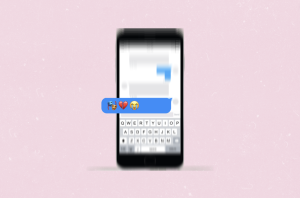Washington Post: A surge of scams, fake AI-generated profiles and harassment making dating apps increasingly unfriendly to users. 4 in 10 users have encountered a scam on a dating app, 2 in 10 have fallen for one, according to Kaspersky
From the Washington Post | By Tatum Hunter March 6, 2024 at 6:00 a.m. EST
Dating apps have gotten so bad that speed dating is in again
Drowning in dating app fatigue, singles are reviving the analog practice of showing up and talking to strangers

SAN FRANCISCO — Seven men and six women sit scattered around a tiny Irish pub in a sleepy San Francisco neighborhood on a Wednesday night. A woman with a sleek ponytail and jade blouse posts up at the bar. A man in a blazer tucks into a high-top table.
Then there’s John Tierney, 30, sporting a bleached mullet, patchwork cardigan and unwavering self-confidence. This is his first attempt at speed dating, he said, and he’s loving the novelty of meeting single women in real life, rather than swiping on a dating app.
“I come off better in person,” Tierney said. “I just try to match people’s energy.”
Speed dating isn’t new. But like flared jeans and silver jewelry, trends from the early 2000s are circling back around. Participants say the resurgence of speed dating is a direct response to frustration with dating apps, which take more work and yield fewer matches than they used to. Speed dating comes with its own challenges — like talking to strangers — but for people craving more in-person connection, the risk is worth it. Participants said seems like a “nice break” from the “discouraging” process of app dating.
A surge of scams, fake AI-generated profiles and harassment is making dating apps increasingly unfriendly to users. About four in 10 North American users have encountered a scam on a dating app, while about two in 10 have fallen for one, according to estimates from cybersecurity company Kaspersky.
Last month a class-action lawsuit against Match Group — which owns dating apps Tinder, Hinge and the League — claimed the company chases profits at the expense of daters, deliberately keeping users swiping rather than helping them find romance. Plaintiffs alleged the company has built addictive features, compelling them to pay for upgrades. Combined with opaque matching algorithms, these features prevent users from reaching their relationship goals, according to the lawsuit.
Match called the lawsuit ridiculous and said its products are designed to get people off the apps and on real-life dates.
Lots of people treat dating apps like mobile games rather than pathways to actual meetups, said Anwar White, a Montreal-based dating coach. From last year to this year, the number of dates his clients set up from dating apps has dropped sharply. So he’s trying a different tack. Clients are hungry for more in-person interaction. During the height of the pandemic, some replaced hangouts with social-media scrolling, and now they’re wondering how to get back out there. Many go to speed-dating events and come home with new friends, he said, even if there isn’t a love connection. “I genuinely had fun,” he said. “It’s a funny story to tell anyway.”


